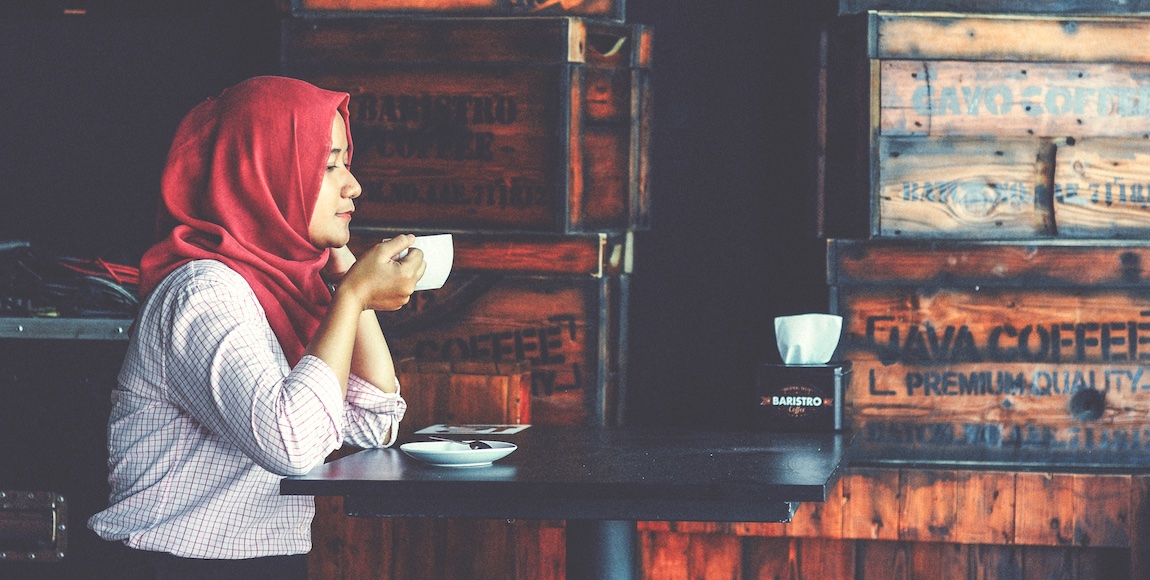October 1 marks International Coffee Day. It’s the day where caffeine lovers around the world can proudly celebrate their love of the popular drink. Did you know there’s a quote that says “Turkish coffee should be black as hell, strong as death and sweet as love.” Coffee is something that has been drunk for centuries but has increasingly gained popularity as a result of pop culture. FATIMA MOOSA rounds up 5 of the most interesting facts about coffee.
The Origin Story of International Coffee Day
The day of celebration and promotion of coffee became a thing back in 2015 when the day was agreed upon by the International Coffee Organisation. (Yes, it’s a thing!) It was launched in Milan because whereas else but in Italy where coffee culture is taken very seriously. The day is not just a day to drink copious amounts of coffee. It is also used to promote fair trade coffee and to raise the plight of the coffee grower. So the next time you pick up your cup of coffee, ask your barista where the coffee beans come from. Make the effort to create a sustainable and ethical coffee industry. Unofficially September 29 is National Coffee Day in South Africa.
Read more: The Colonial History Of Tea
The First Cup of Coffee
According to the legend, the ancestors of the Oromo people of Ethiopia were the first people to have recognised the energising effect of the coffee plant. As with most legends, the one about coffee is thin on facts and recorded history but makes a great story. The story goes that a 9th century Ethiopian goatherd discovered the power of coffee when he noticed how excited his goats got after they had eaten the beans from a coffee plant.
In another story, an exiled sheikh was starving in Yemen when he discovered these berries. He tried chewing them and roasting the seeds but it was too hard and bitter. After he boiled, the seeds resulted in a fragrant brown liquid. He was revitalised from drinking it and the story of this miracle drug spread around. The coffee plant was the introduced to the Arab world.
Religious Bans
In both Islam and Christianity, coffee was actually bans at different points by religious leaders. In the 1500s the scholars in Mecca prohibited the drinking of coffee. It was used in religious rites by the Sufi branch of Islam and it was accused of being a heretical substance. After 30 years of fiercely contested debates, the ban was overturned in the mid 16th century.
In Ethiopia, the drink was banned by Orthodox Christians until as late as the 1889 as it was regarded as a Muslim drink. However, now in Ethiopia it is regarded as the national drink and is enjoyed by people of all faiths. It was also banned briefly in Europe because it was associated with rebellious political activities.
Word Origin Story
Want to know the history of the world coffee? Well it has undergone quite a few changes until it got to the English word. It was first known in Arabic as qahhwat al-bun which basically translated into wine of the bean. It was then shortened into qahwa. (Arabic qahwa is a must try) It was borrowed by the Turkish and became kahve. Once more it was “borrowed” by the Dutch to become koffie. (That’s basically what Afrikaans-speakers call it) And then finally it became coffee for the English-speaking world. Interestingly enough is that all the different words represent the drink made by infusing coffee beans rather than the name of the coffee cherry fruit of the coffee plant itself.
Coffee Culture
Just like tea drinking has a whole culture, there are many traditions that come along with coffee drinking. Coffee culture is the social atmosphere or social behaviours that rely on coffee to act as a social lubricant. The formation of the coffee culture dates as far back as 14th century Turkey. It started with coffee houses where people would gather and drink coffee with friends and family. In Europe, as well as being social hubs, coffeehouses were also artistic and intellectual centers. There are many stories and books of various famous writers like Simone de Beauvoir, Jean-Paul Sartre, Ernest Hemingway and others gathering at coffee houses to share ideas and writes. Nowadays coffee shops have even become places where people go to work and socialise with free WiFi being on the menu as well.
So how will you be celebrating your International Coffee Day? Comment below or tweet us @thedailyvox?









